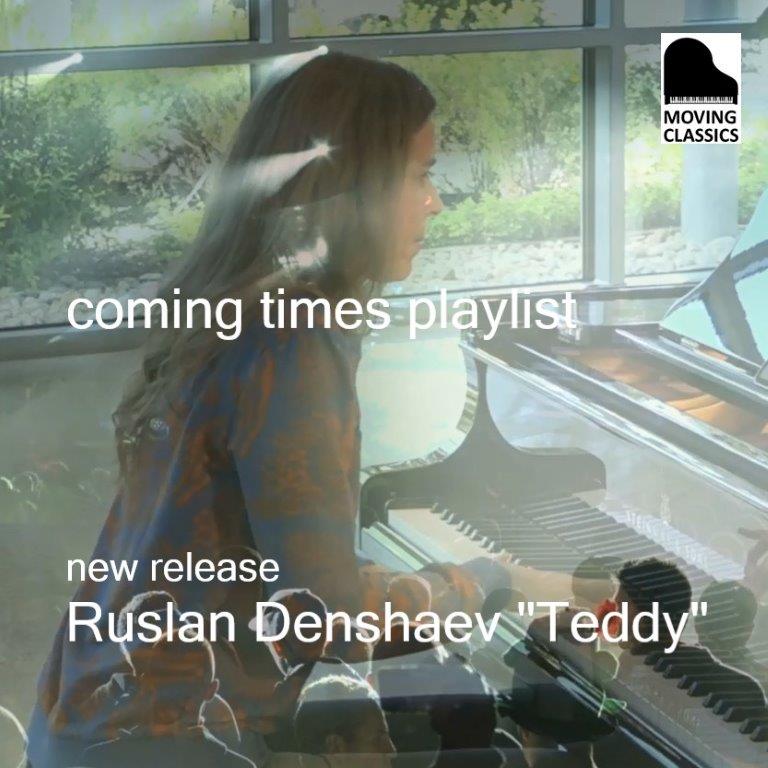Great to have you back!

1
Videos
About
I was born in 1999. Received a standard school education. Spent one year in the army. Now I am studying at the Gerasimov Institute of Cinematography (VGIK).
I wasn’t a musical kid. Got the real interest in “classical” music in 14. It was Edgar Varèse, Anton Webern, Igor Stravinsky and Béla Bartók. I started trying to compose in 15.
For music scores, https://musescore.com/r_d
Sheets
Interview
What does music mean to you personally?
Music is the best form of medium for me. Due to its ability of expressing inexpressible and conveying the direct emotions, I’m feeling with it more comfortable than with any other form of art.
Do you agree that music is all about fantasy?
Without imagination there’s no real art. But without mastery there’s no real art, as well. So, I wouldn’t distinguish only one component.
If you were not a professional musician, what would you have been?
I do not consider myself a professional musician. If not music, I would probably make films or write poems and short stories.
The classical music audience is getting old, are you worried about the future?
As a youth representative, I can only say that there are many young people who loves “classical” music and many young people who wants to perform or compose it. So, it is not so bad, after all. The real music is not a thing that will die, either way.
What do you envision the role of music to be in the 21st century? Do you see that there is a transformation of this role?
A big transformation took place after World War II, when the old principles collapsed and people needed solid ground under their feet. The rationalist aesthetics were highly appropriate at that time. Just like it was with ‘Return to order’ and neoclassicism in 1920s. I think it will transmute in our century, either. Life is different now. Contemporary people are very self-concentrated, maybe it will lead us to a new romanticism trend — in means of creative goals and methods, not style. The role is the same: being competent medium between people and the Harmony.
Do you think that the musician today needs to be more creative? What is the role of creativity in the musical process for you?
Musicians always should be creative. Without creativity there won’t be any progress. A composer can practice “classical” writing to that extent, when he or she would easily stamp formulaic works with no interest in them. But, with a help of creative power, even these things could become masterpieces. But I guess it isn’t question of need. Creativity and talent are natural features and they aren’t inherent in all people on Earth, whether we like it or not.
Do you think we as musicians can do something to attract the younger generation to music concerts? How would you do this?
It seems, that common youth isn’t interested with such things in itself. More likely, with brands and labels things have. So, I think “classical” music could get another reflection in their eyes, if it will re-brands its image. Some right advertising, spiritual decline and vulgarization will probably work with the student audience. But it is about common youth. There is also another part of the generation, the smaller one that has sincere interest in art.
Tell us about your creative process. What is your favorite piece (written by you) and how did you start working on it?
Just like Jean Cocteau once said: there’s no “inspiration”, but there’s “expiration”. I’m collecting expressions and emotions as a build material. It accumulates like a snowball. Then, when I feel an urge to compose, I just do it. Almost always this feeling leads me in the right direction. Technique is necessary, but it’s on the background of my mind. I’m really caring about the integrity of that “expiration” feeling, so I almost always write pieces in one go. My favorite own piece is a set of songs on Sylvia Plath poems. I was having an idea of realizing her works into the music for quite some time. It is all about emotional impulse, that I got from her ‘Ariel’ book. And when I started writing, I already had some subconscious knowledge of how to deal with it. It’s hard to explain, actually.
Can you give some advice for young people who want to discover classical music for themselves?
Thanks to Frank Zappa for that I started discovering “classical” music. His propaganda gained my interest. My first full “classical” experience was Edgar Varèse’s ‘Ionisation’. It converted me. I recommend to start discovering music with the works of Debussy, Satie, Ravel and early Stravinsky. In my opinion, it would be a perfect compromise between modern and comprehensible for young listeners.
Do you think about the audience when composing?
It depends on what I compose.
What projects are coming up? Do you experiment in your projects?
I don't know it myself. I don’t like to write in the same manner. So, I always experimenting. For me, it is also some kind of education.
Copyrights © 2019 Moving Classics TV All Rights Reserved.
